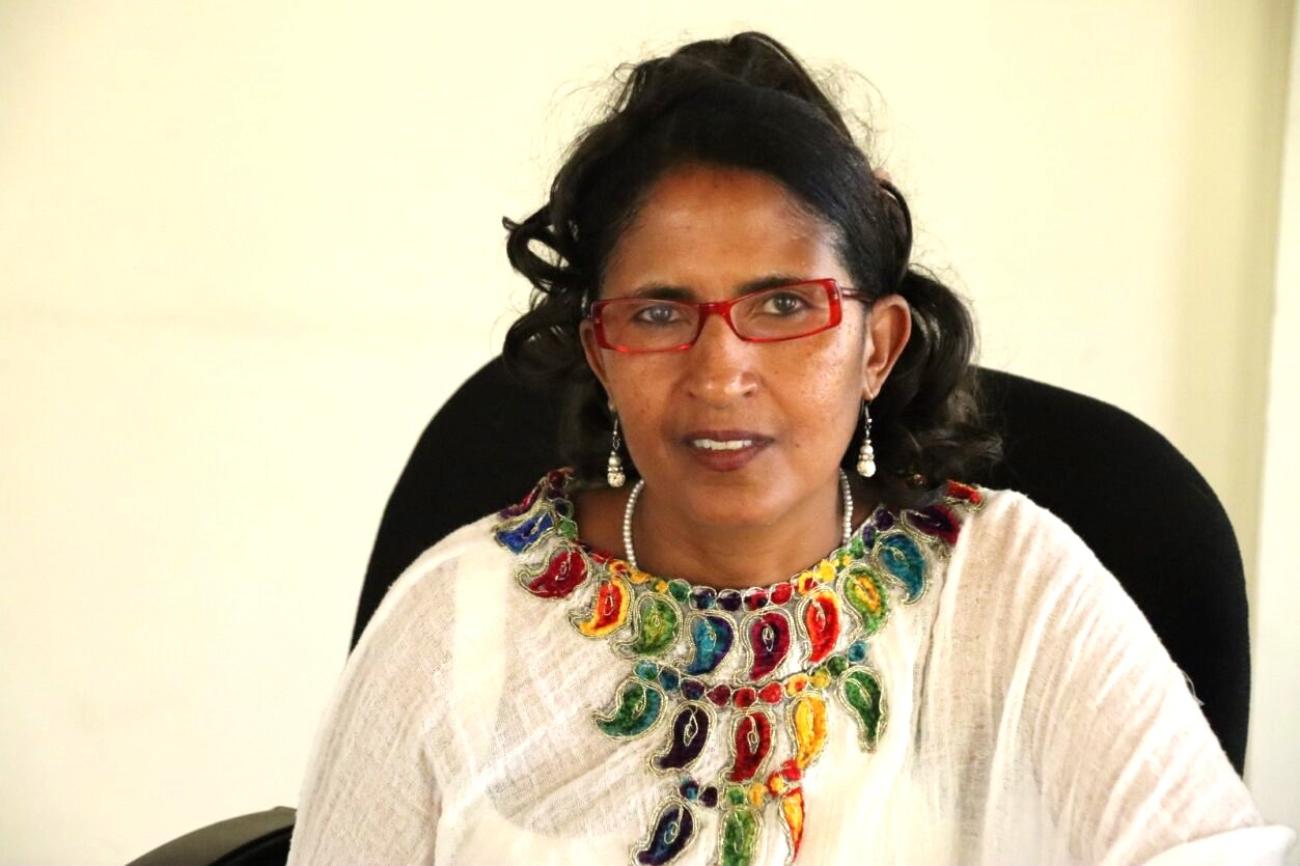Strength in Struggle: Muluken Gebrewold’s Resilient Journey to Economic Independence

Muluken Gebrewold is a 43-year-old Ethiopian woman, born and raised in Bedele city in the Illubabor Zone. She is divorced and has a 26-year-old son.
Muluken’s life took a dramatic turn after the loss of her mother, the end of her marriage, and the termination of her job as a typist in a courthouse, all happening at the same time. This series of challenges pushed her to seek new opportunities in Addis Ababa. However, life in Addis Ababa remained difficult for Muluken as she worked as a cashier in a restaurant, with her salary barely covering her basic needs.
The turning point came when Muluken's younger sister came across an agency advertising opportunities to travel to Lebanon, requiring an initial payment of $100. Encouraged by her sister, Muluken saw this as an opportunity, realizing she had nothing to lose given her struggles. She sold her gold necklace to cover the cost of her passport and migrated irregularly to Lebanon after obtaining a visa. Upon arrival, however, she found herself in a remote desert area bordering Israel, far from the urban setting she had imagined.
“Initially, the agency told me I would be working in the capital city, something I was looking forward to. However, when I arrived at the family’s home, located in a remote and desolate area, I was shocked by the huge disparity between what the agency promised and the reality of my employment. I even wondered if the employers had taken me by mistake,” she recalled.
Her employers were an elderly couple living in a three-story house with their daughter, who occupied one of the floors. A few weeks later, Muluken discovered that her employer’s daughter also had an Ethiopian maid, who helped her adjust to the environment, translated her employers' requests, and taught her the local language. Despite these efforts, Muluken faced frustrating circumstances, including difficulty meeting her basic needs and experiencing physical and emotional strain at work.
After a few months of enduring these difficult conditions, Muluken learned from the other Ethiopian maid that her employers were planning to relocate to the US and intended to send both maids back to Ethiopia. Determined to stay in Lebanon, Muluken and the other maid decided to escape the household, leaving their passports and work permits behind. Though she initially struggled to find work without her Iqama (residence permit), Muluken eventually found a job as a cleaner three days a week, enabling her to afford her own flat with a roommate. She attempted to regularize her immigration status with the help of a new sponsor, but her former employer demanded money before providing the necessary paperwork. Muluken worked for nearly a year, saving $2,500 to pay off her former employer and finally obtained her passport and Iqama, allowing her to work freely in Lebanon.
However, after a few years, Muluken's health began to deteriorate, and she faced a critical condition that required immediate treatment. She convinced her employer to let her return to Ethiopia for surgery. After undergoing surgery and spending four months in recovery, Muluken returned to Lebanon, only to face further health challenges and the worsening economic and political conditions in the country. Despite these setbacks, Muluken remained committed to supporting her family back in Ethiopia, particularly her younger sister and her three children. Over the course of seven years, she provided financial assistance to ensure her niece and nephews could pursue higher education.
After 14 years of working in Lebanon, Muluken decided to return to Ethiopia due to a recurring medical condition that required ongoing treatment, as well as challenges finding stable employment due to the COVID-19 pandemic. Upon her return, Muluken learned about the Start and Improve Your Business (SIYB) 15-day intensive program for returnees, organized by the International Labour Organization (ILO) Better Regional Migration (BRMM) Programme, funded by the UK FCDO. The program, which was being held in Ledeta Subcity, Addis Ababa, provided training for returnees.
The training offered valuable insights into financial management, entrepreneurship, and self-prioritization, giving Muluken the confidence to start over and pursue her goals. Reflecting on this opportunity, she said, “If every returnee had taken this training before they migrated, we all would’ve achieved tremendous success in life by now.” She emphasized how the training equipped her with essential skills in financial management, saving, and entrepreneurship, which inspired her to open a day-care center.
Muluken stressed the importance of not overlooking small opportunities and learning to prioritize one’s own needs, especially for migrant workers who often face exploitation and a lack of support. Ultimately, she viewed the training as a turning point, enabling her to shift her mindset and take meaningful steps toward a brighter future.

